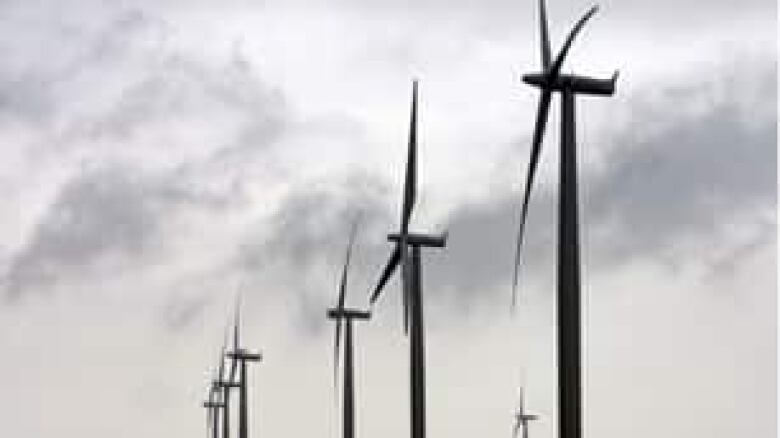N.B. wind power surges in summer
New Brunswick's focus on introducing wind generation into the power mix is starting to show dividends as it accounted for more than 30 per cent of the province's energy load three times last summer.

But Sylvain Gignac, the president and chief executive officer of the New Brunswick System Operator, said at three different times in the summer, wind power supplied more than one-third of all the electricity being used in New Brunswick.
"Obviously you do have exceptional events where it goes above 30 per cent but that is really rare and it happened only for three hours," Gignac sad.
"But when it arrived we were surprised and the good thing is that the system worked efficiently."
While having wind power represent one-third of the province's total load may be an anomaly, wind power regularly contributed 10 to 15 per cent of the power for the provincial grid last summer, according to Gignac.
'I would say that a couple of years ago, within the industry, it was very difficult for us to foresee wind penetration in terms of capacity and also in terms of energy being produced to be that high.' — Sylvain Gignac, president, N.B. System Operator
The New Brunswick System Operator is an independent organization that is responsible for maintaining the safety and reliability of the province's transmission grid. The system operator tracks how much power is on the province's grid and what stations the electricity is coming from.
The New Brunswick government has put a major push on for plugging more wind resources into the grid.
New Brunswick has a winter-peaking system, which means the majority of its power is consumed in the winter. The province has a peak demand of 3,100 megawatts
The three specific instances when the use of wind power surged came in the summer and overnight when the amount of power being consumed was minimal.
Gignac said a few years ago the idea of having one-third of the province's energy load coming from wind at any one time would have been impossible.

The system operator's president said those instances stand as milestones and he expects those targets will be reached more often as more wind capacity is being developed across the province.
TransAlta's Kent Hills wind farm was the first to start producing energy onto the province's grid.
That 96-megawatt wind farm in southeastern New Brunswick can provide 280,000 megawatt hours of power each year, which could sustain the energy demands of roughly 17,300 homes.
TransAlta is expanding its Kent Hills facility and other wind farms, such as a project in Lameque, are planning to come online in the future.
While the province's wind footprint is still rather small, an August 2008 report done for the New Brunswick government by Ea Energy Analyses suggested that there was a potential for 3,000 to 4,000 megawatts of wind power to be developed in New Brunswick.